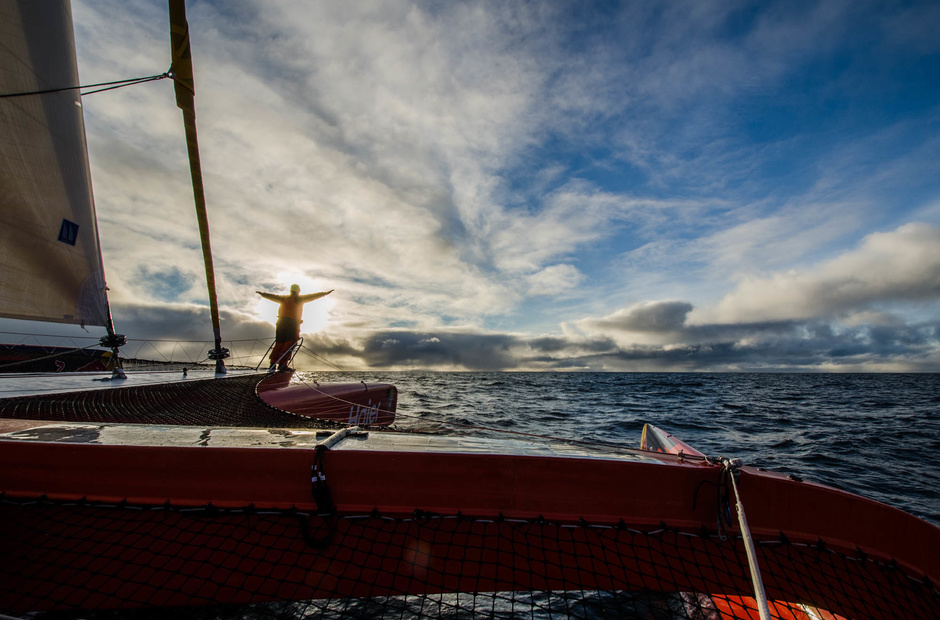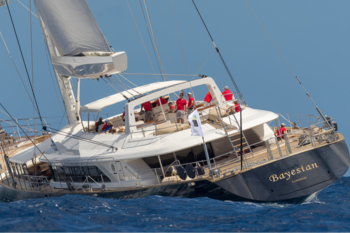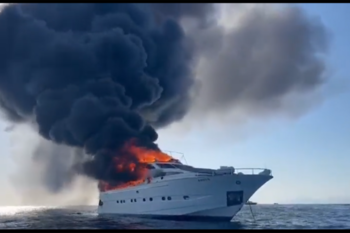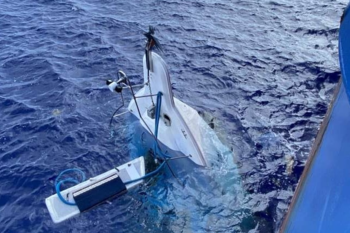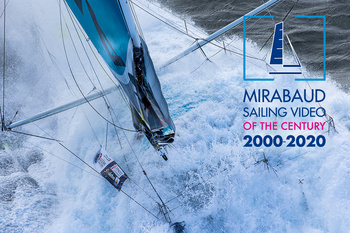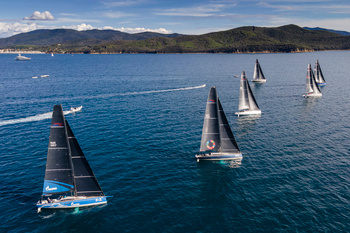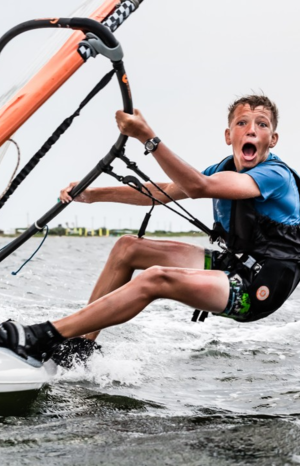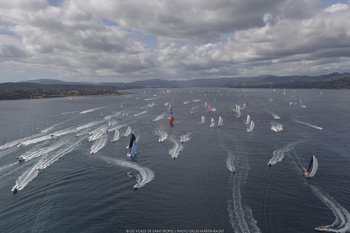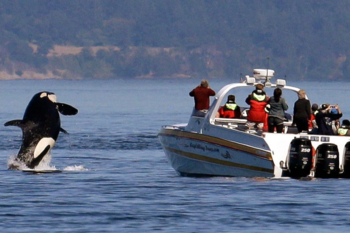Last week, when trying to set a record for crossing the Pacific Ocean, Guo Chuan, China's No. 1 yachtsman, went missing. The American Coast Guard found his Qindao trimaran near Hawaii - empty, with a vest on board and a genaker hanging in the water.
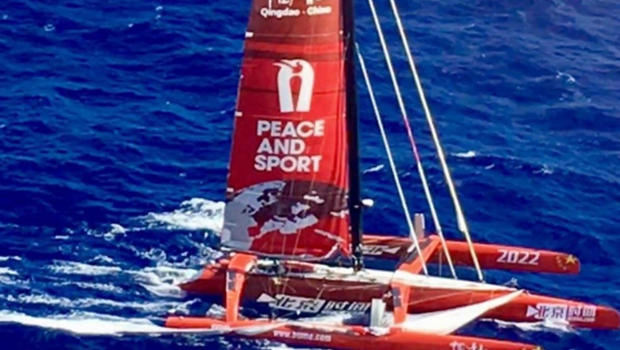
The Go Chuan Racing Team has published two versions of what could have happened to a sailor.
Scenario 1.
Go went downwind with one reef on the mainsail and a genaker, with wind speeds ranging from 13 to 20 knots. At the end of the day, he decided to remove the genaker to ensure safer navigation at night. He then tried to move it to the windward side (which is a rather difficult manoeuvre for solo swimming).
At one point the yachtsman unhooked the boat for some unknown reason. He held the halyard and at the same time tried to restrain the genaker. The halyard fell out of his hands, and the gennaker fell far into the windward side of the boat. Trying to keep the gennaker from falling into the water, the sailor himself fell overboard in the area of the float or near the forward beams on the starboard side.
Scenario 2
Go went downwind with one reef on the mainsail and a J1 sail at wind speeds of 13 to 20 knots. This is the safest combination of sails to sail at night. The Gennaker was rolled up, but it's still up. For some unknown reason, either the halyard or the genaker's rope broke. Go turned the J1 to slow the boat down and take care of the Genaker who fell into the water. He started pulling the genaker out of the water by standing on a grid next to the starboard float. Manipulating a heavy genaker, he untied himself from the boat to change his position on the boat. At that moment, a large wave threw the genaker back into the water and washed Go into the ocean.
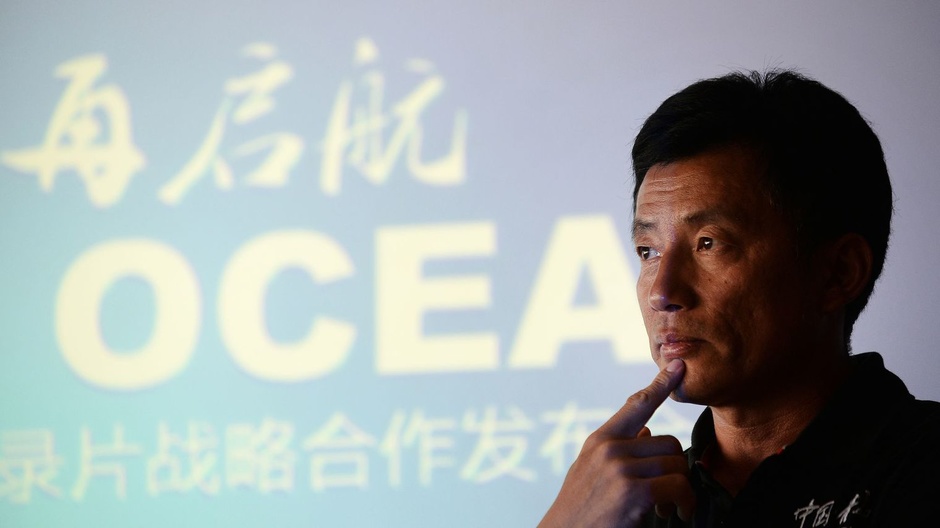
At present, the search for Guo Chuan has been stopped. The U.S. Coast Guard has brought its condolences to the families of the yachtsman. Itboat is publishing the translation of one of the last big interviews with Guo Chuan.
On the list of world sailing records, the vast majority of names are French. There are Americans and a couple of Brits. But one name stands out for its unusual sound to the European ear. The more I read about Go Chuan, the more curious I became; after the Rio Olympics, I managed to catch him and record this interview in which a Chinese skipper talks about his life, career and solo circumnavigation record.
Go Chuan was born in 1965. He is the same age as my parents. But these are naked numbers. Actually, he doesn't look fresh for years. His whole figure makes him look energetic and optimistic. In addition to his love of sailing, he also has a degree in aeronautics from Beijing University of Aeronautics and Astronautics and an MBA. Before becoming China's most famous sailor, Guo Chuan worked on commercial satellite projects. Yeah, that's the kind of man who can guide a boat through the roaring forties.
NFS.com: Go, thank you for taking the time to answer our questions. Few people in Europe are interested in how sailing is developing in other countries, in Asia, in China in particular. I think we are too busy with local sailing problems. Tell us about sailing in China.
Guo Chuan: Sailing in China has been developing very fast in the last decade, especially after the Beijing Olympics. China's policy on sports development and people's attitude towards sports has undergone revolutionary changes. As economic development progresses, people's welfare is increasing. They have more choice in sport and no longer believe that sport should be played solely for an Olympic medal. I have no doubt that sailing will grow rapidly in the coming years.
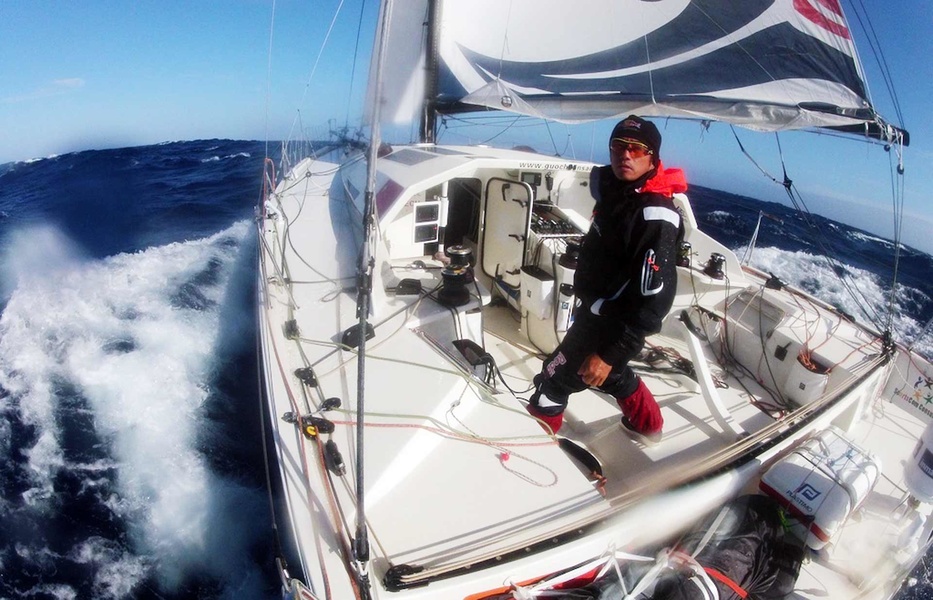
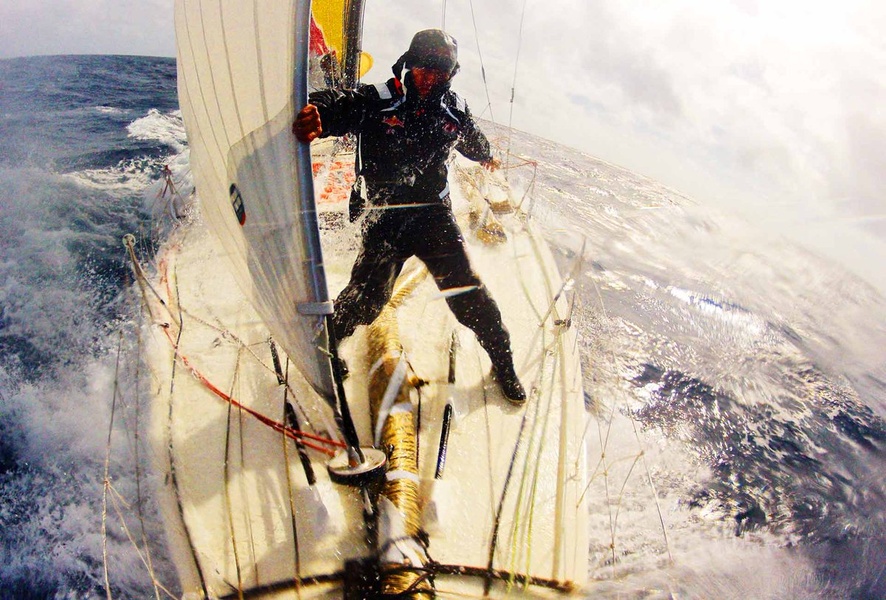
NFS.com: I saw your name for the first time in connection with the solo circumnavigation record, then it was remembered in conjunction with the Qindao trimaran. How did you get into sailing? Why a sail?
Go Chuan: I fell in love with sailing in 1998. My friend had a 40-foot yacht he sailed for his own pleasure. Now looking back, I ask myself if it wasn't fate that I set my first record on a 40-footer. Before I went solo around the world, I spent years studying and training in France. In 2006 I took part in the famous Clipper Round The World, got on board the VO 70 Green Dragon as an on-board correspondent during the Volvo Ocean Race 2007/08, and finally in 2011 I chased the MiniTransat...
NFS.com:... where did you get the single swim virus?
Go Chuan: Yes, you could say that. I had a dream of going around the world alone. The fact that I was able to successfully complete it and set a record for the Class 40, I still consider it my great achievement. It is an important milestone in my sailing career and a new starting point.
NFS.com: In what respect?
Guo Chuan: After the circumnavigation of the world, I switched to a larger boat. In 2015, I had the opportunity to lead an international crew and set a new world record by crossing the Northern Sea Route. It was the first attempt of its kind in history. We had a crew of 6 people, except me, there were two other French, German and Russian.
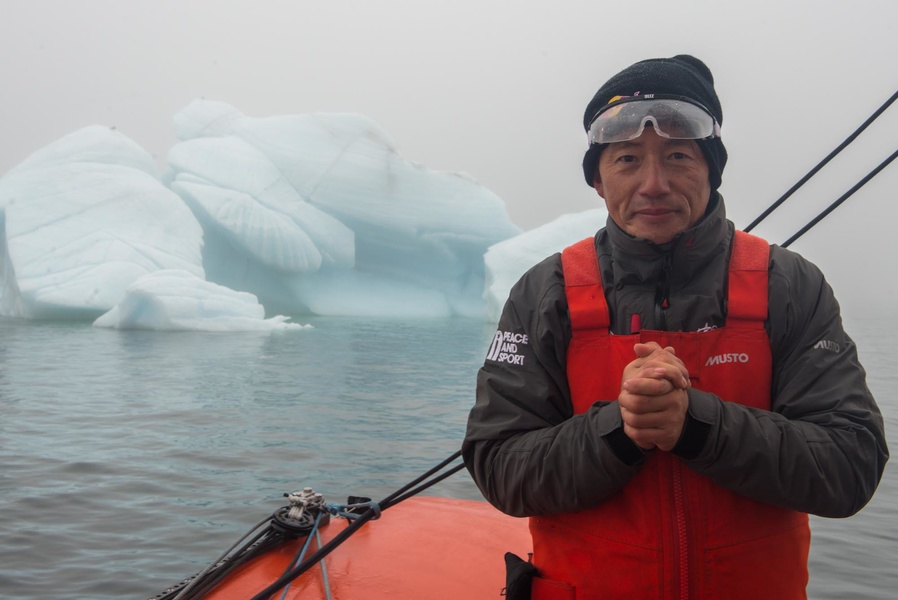
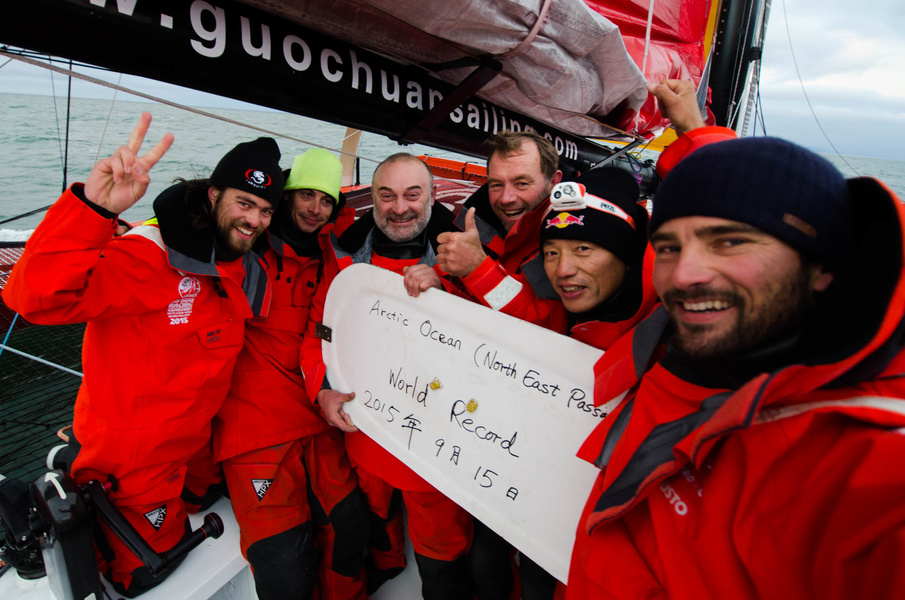
NFS.com: I interviewed young British skipper Lizzy Foreman, we talked about MiniTransat and how it affected her life. And what are your impressions of the 650 Mini across the Atlantic?
Go Chuan: MiniTransat is a very tough race. It is a serious test of sailboat management skills, ingenuity and courage, of course. Since it is a single race, it meant a lot to me. I can also say that Clipper Round the World - a race for non-professionals - is a good starting point for those who are in love with sailing, want to try and perhaps become a professional in the future. I have learned a lot in these two races, and of course in the Volvo Ocean Race. I don't think I would have been able to successfully complete the world round if I hadn't had training in France and hadn't had experience in these three races.
NFS.com: First of all you notice that you managed to walk around the world in a very short time - 137 days, which was a record for Class 40. Why did you choose a yacht of this class?
Go Chuan: Well, first of all, because no one has ever tried it before in the Class 40. I liked the idea of never having done anything like this before. And secondly, my team and I did a good research and found that although the Class 40 is a very small boat compared to the task, it has a fairly stable and rigid construction and good performance.
NFS.com: Your current boat Qingdao is designed by Marc Lombard Akilaria RC2. Why this one?
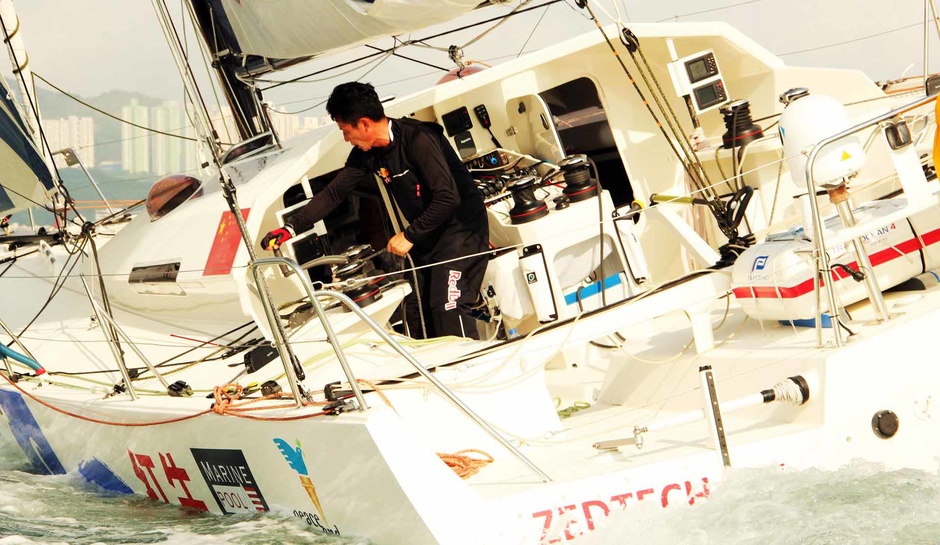
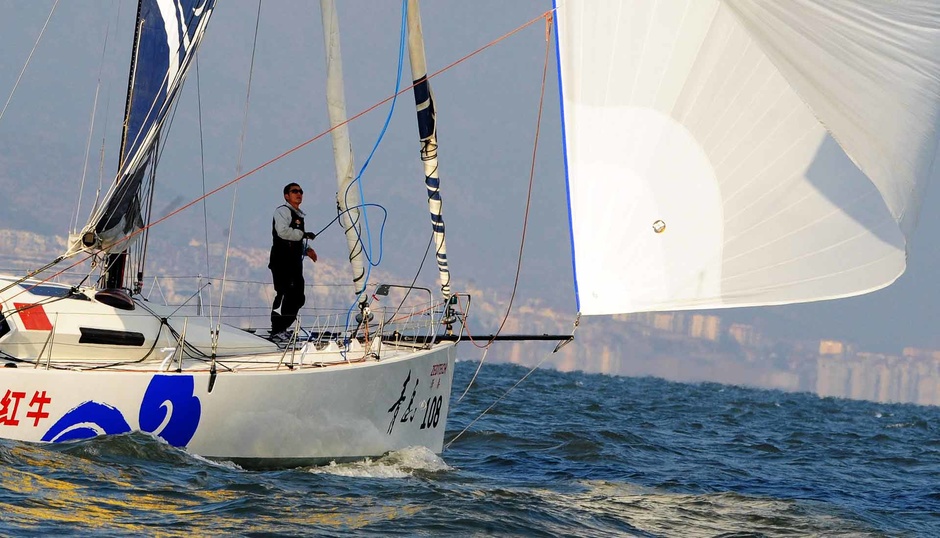
Go Chuan: I would say that Akilaria, Pogo and Owen Clarke are all very good boats. Although their design is a bit different, they are all top class racing boats. But Akilaria is more familiar to me. My technical manager worked for Akilaria and we got strong technical support and quality after-sales service from this brand.
NFS.com: When it comes to boats, have any special improvements been made on the boat to prepare it for the world round?
Guo Chuan: Yes, of course. It's always necessary to refit a boat before starting a voyage. Sometimes this work has to be done a few months before trying to set a world record, because the boat has to be tested to test it and improve it. This was done in the case of the Class 40, which we retrofit with the scope for greater strength and stability. The Trimaran was also refitted before trying to set a world record in the Arctic Ocean. We adapted it to the extreme weather conditions there. For example, the hull was reinforced with Kevlar. We also equipped the boat with a sonar for ice detection and a thermal imaging camera.
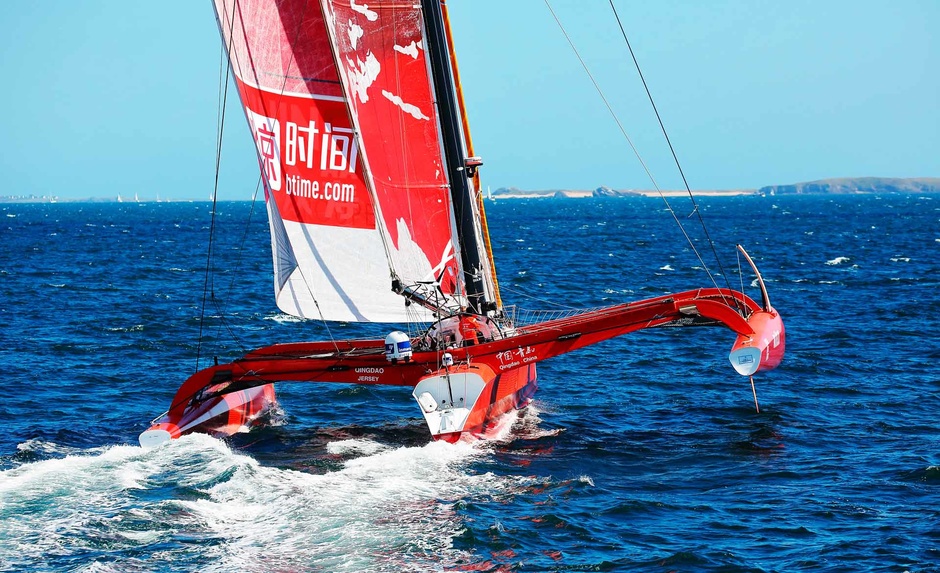
NFS.com: Go, describe the most exciting moments of your journey on the Class 40.
Go Chuan: For me, the most exciting moment was the wrap around Cape Horn. When it came to the horizon, I just couldn't hold back my tears.
NFS.com: What was the hardest thing about solo round the world?
Go Chuan: Loneliness and fatigue, I would say. During such travels, you can only count on one thing, no matter what happens: yourself. It puts a lot of pressure on you psychologically. The other hardest thing is the constant desire for sleep. I've never slept more than 20 minutes in a row.
NFS.com: Tell me more about your sleep mode, please.
Go Chuan: It's really a very difficult task while traveling. You have to keep utmost vigilance all the way since you are alone on the boat. This means that even if the weather conditions are stable enough, you can sleep for a maximum of 20 minutes. If the conditions get worse, you should stay awake for as long as the weather lasts.
NFS.com: In this mode, nutrition is especially important. Tell me how you solved this issue.
Go Chuan: The lion's share of the food I ate on the boat was a special dehydrated food for sailors. But I also brought some fruits and vegetables. It is clear that since the round-the-world voyage lasts much longer than 100 days, it is clear that fresh fruits and vegetables will not last long. So I had more vitamins and energy bars. And of course, as a special treat, I had my favorite Chinese hot sauce.
NFS.com: Go, your journey lasted 137 days. What was the thing you missed the most? What did you do immediately after you arrived home?
Guo Chuan: He hugged my family and took a long time in the hot shower.
NFS.com: What are your future plans?
Guo Chuan: I did a trimaran - another Qingdao - from Trinité-sur-Mer in Rio de Janeiro for the Olympics. We will spend a month in Rio. We will go to San Francisco on August 25. So I'll be reading this interview at sea. We expect to arrive in San Francisco in late September. Then in mid-October, I will try to set a record for solo crossing the Pacific Ocean. I'm going from San Francisco to Shanghai, so I'm looking forward to this trip.


